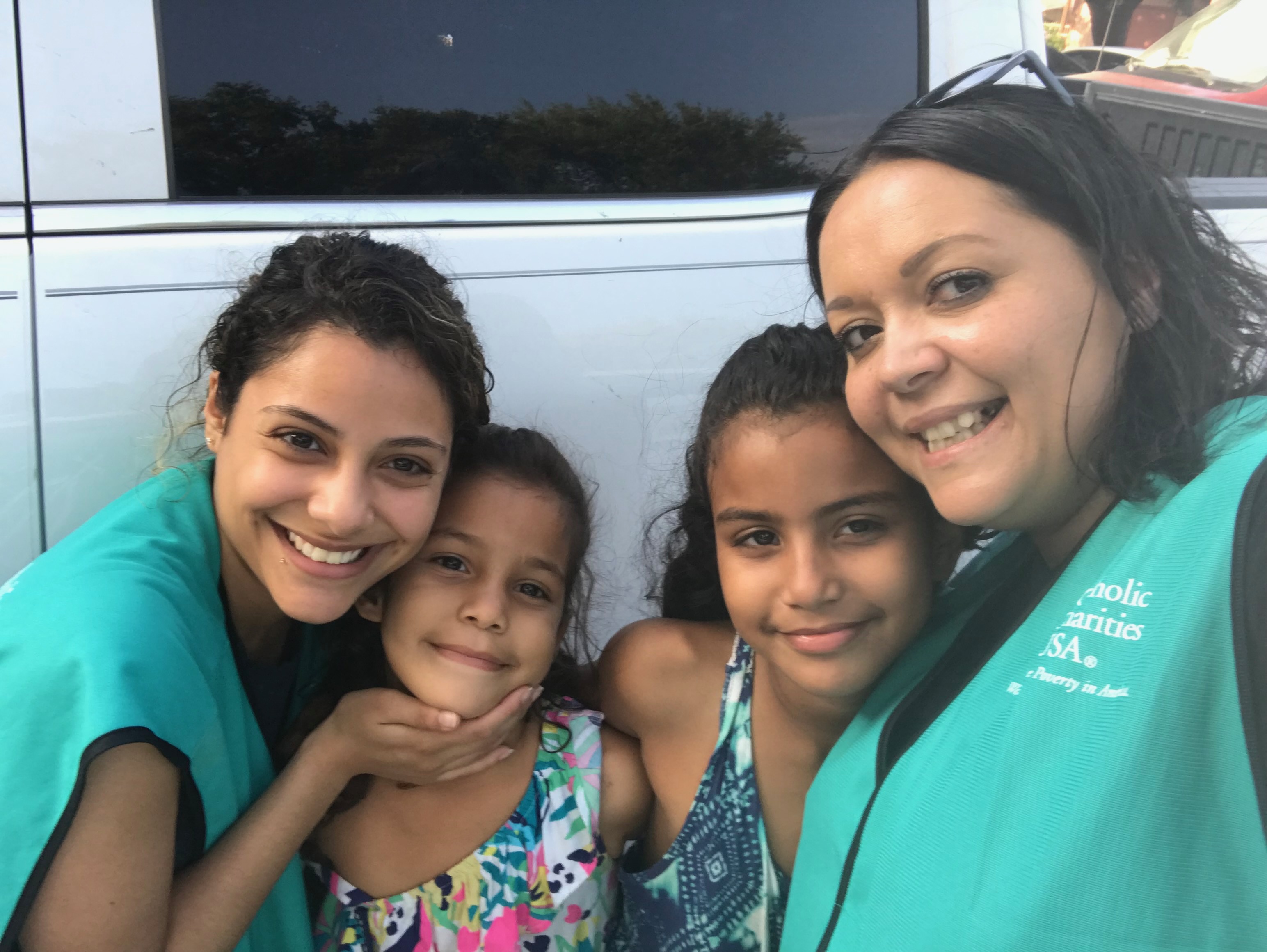
Three Lessons We Learned Helping Migrants at the Border
“I am just happy to finally be treated like a human being for once in my life.” Uttered a man arriving in Yuma, Arizona from the border. Day after day, border patrol vans brought 200-250 migrants who arrived with nothing but the clothes on their back and their papers in hand. Many had just finished a 29 day journey with the hope of a better life for their family.
Each person comes through the border with a story. A handful of these stories were seen by seven of our employees who volunteered in Laredo, Texas and Yuma, Arizona to help migrants upon their arrival to the U.S. During our time volunteering, we drove migrants to the airport, watched children, helped people make calls to their family, and set up the clothing closet and food pantry.
All of us came back in unanimous agreement, “we would do it again in a heartbeat.” We’ve summed up our experience in the form of three life lessons:
Don’t Take “Basic Needs” for Granted
As migrants arrived you could see the exhaustion on their faces. The only items they came with were papers and some had a sticky note with their family member’s information on it. Most had walked miles and gone days without food, showers, change of clothes, or access to hygiene items. During intake (the process of checking them in), you would hear, “I haven’t eaten in five days, but everyone has treated me so well.” Hearing people remain so positive and grateful, made us realize the amount we take for granted. To think, we complain when we haven’t eaten for a single day, and people in much worse situations did not offer a single complaint.
Not only for food and water, but migrants were grateful for everything offered to them. Have you ever thought in the morning how thankful you are to have a toothbrush? Imagine going 29 days without one. It’s something so small that we hardly think about, but when we handed new toothbrushes to migrants their eyes gleamed with excitement.
After receiving a shower, hygiene items, food, clothes, and shoes, it was as if people were coming alive again. Even babies, who had entered the shelter with fear in their eyes, cracked smiles and laughter after being cared for. Going forward, we will always remember to appreciate the things we have, no matter how small.
Help Strangers as if They Are Family
Migrants didn’t know any of the people bringing them across in this journey, so they put their trust in the kindness of strangers.
Some of us had seen our families go through tragedies in the past, and were inspired to help others how they had once helped our own family. This was the case for Danishka Valdes, whose family was affected by Hurricane Maria in 2017. At the time, Danishka was unable to afford the trip to help her devastated family. Now that she is able to give back, she states, “I have to do it, even though it’s not my family that’s affected, it’s still people and I want to help as much as I can.”
Meanwhile, Melissa Beauchemin thought of her own daughter. “The hardships and risks that were and continue to be undertaken for the chance at a better life are unfathomable to me. As the mother of a 16-year old daughter myself, reading about what some of these poor women are currently escaping from in order to protect their daughters made it very real for me.” Said Melissa. We are fortunate and happy to be able to help others, whether it be family or strangers.
Remain Hopeful, Even in Hardship
As the migrants arrived, one of the questions we asked was if the family was complete or if there were any members unaccounted for. One man shared that he and his children lost his wife/their mother during the journey and was unsure if he would ever see her again. Little did he know, she had already checked into the shelter earlier that day and was awaiting his arrival. A family who thought they may never be together again was reunited; it was a truly unforgettable moment.
Our entire trip was an eye-opening experience, we were impressed that migrants from all different countries banded together to support each other. After everything they had been through the past month, they joined together as strangers to pray, sing, and share hope. Many lent us a helping hand around the shelter: setting up cots, tables, chairs, and caring for children. They were exhausted from their travels, but still showed so much compassion for families going through the same thing.
Our experience helping at the border was one of a kind. Seeing the struggle migrants went through to arrive in the U.S. put our own lives in perspective. After this, we will always be thankful, lend a helping hand, and never give up hope.

